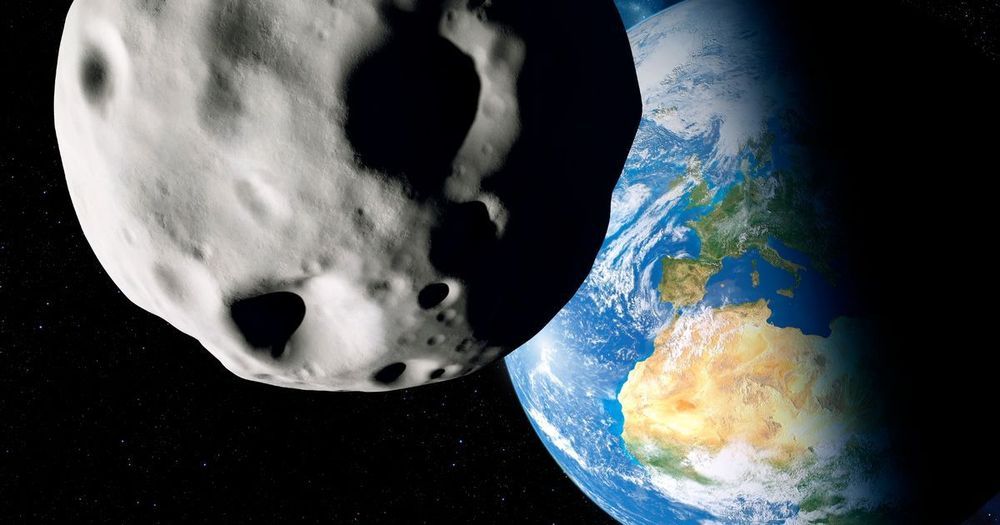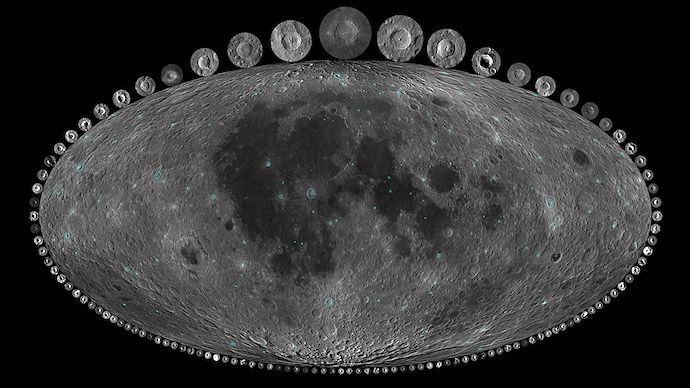Uh oh…
(Via Mirror Tech)
The space rock, dubbed 2013 MD8 will make a ‘close approach’ to our planet tomorrow afternoon.


They’re little battlers, the greatest survivors on the planet and you may have them in your garden, writes Lana Hart.
They’ve been boiled, frozen, put in vacuums, starved, and exposed to unbearable pressures and radiation — but scientists can’t kill this creature.
They are the only animal to have survived all five of earth’s mass extinctions. This incredible feat is due to their development of unique survival mechanisms not seen in other parts of the animal kingdom.

Since 2015, when images of a Russian nuclear torpedo first leaked on state television, the world has asked itself why Moscow would build a weapon that could end all life on Earth.
While all nuclear weapons can kill thousands in the blink of an eye and leave radiation poisoning the environment for years to come, Russia’s new doomsday device, called “Poseidon,” takes steps to maximize this effect.


With the dropping of the INF treaty, Putin and Trump have brought the dangers of nuclear war back into a more realistic possibility. I’m not posting this to engage in a political discussion but nuclear war is definitely a lifeboat type of issue.
Russia’s military and state-sponsored media have reacted with a fire and fury of their own to the news that the US will exit the Intermediate Nuclear Forces treaties, one of the last barriers to a full-on Cold War-like arms race in Europe — and there’s already talk of a nuclear doomsday device visiting the US.
The INF treaty banned land-based nuclear capable missiles with a range between 300 and 3,200 miles in 1987 when Russia and the US had populated much of Europe with intermediate-ranged nuclear missiles. The ban eliminated this entire class of missiles and went down as one of the most successful acts of arms control ever.
The US and all of NATO concluded recently that Russia had spent years developing a banned nuclear-capable weapon, thereby making the treaty meaningless. The US responded by saying it would withdraw and design its own treaty-busting missiles. Russia said it would do the same, though many suspect they already have the missiles built.

It is a few years since I posted here on Lifeboat Foundation blogs, but with the news breaking recently of CERN’s plans to build the FCC [1], a new high energy collider to dwarf the groundbreaking engineering triumph that is the LHC, I feel obliged to write a few words.
The goal of the FCC is to greatly push the energy and intensity frontiers of particle colliders, with the aim of reaching collision energies of 100 TeV, in the search for new physics [2]. Below linked is a technical note I wrote & distributed last year on 100 TeV collisions (at the time referencing the proposed China supercollider [3][4]), highlighting the weakness of the White Dwarf safety argument at these energy levels, and a call for a more detailed study of the Neutron star safety argument, if to be relied on as a solitary astrophysical assurance. The argument applies equally to the FCC of course:
The Next Great Supercollider — Beyond the LHC : https://environmental-safety.webs.com/TechnicalNote-EnvSA03.pdf
The LSAG, and others including myself, have already written on the topic of astrophysical assurances at length before. The impact of CR on Neutron stars is the most compelling of those assurances with respect to new higher energy colliders (other analogies such as White Dwarf capture based assurances don’t hold up quite as well at higher energy levels). CERN will undoubtedly publish a new paper on such astrophysical assurances as part of the FCC development process, though would one anticipate it sooner rather than later, to lay to rest concerns of outsider-debate incubating to a larger audience?

Today (Jan. 24), experts with the Bulletin of the Atomic Scientists (BAS) updated the imaginary timepiece, which measures the proximity of humanity’s destruction based on the position of the clock’s hands relative to midnight — the hour of the impending apocalypse.
The hands on the hypothetical Doomsday Clock suggest the world is still in dire risk of apocalypse.


What if woolly mammoths could walk the planet once again? De-extinction – or the process of creating an organism which is a member of, or closely resembles, an extinct species – was once a sci-fi fantasy only imaginable in films like “Jurassic Park.” But recent biological and technological breakthroughs indicate that reviving extinct creatures could become a reality. Even if advancements get us there, should we do it?

Dinosaurs never stood a chance once asteroid impacts more than doubled some 290 million years ago.
By studying the Moon, an international team of scientists revealed that the number of asteroids crashing into Earth and its satellite increased by two to three times toward the end of the Paleozoic era.
Contrary to popular belief, most of the planet’s more primitive asteroid-produced craters were not erased by erosion and other geologic processes.